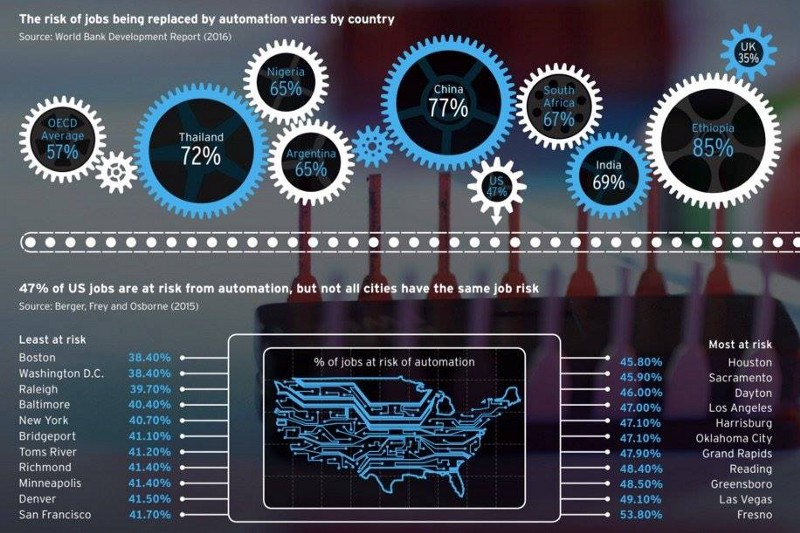Embracing Change and Welcoming the Future of Work
GetLinks CEO Djoann Fal weighs in, on redefining the future of work through an adaptive talent community.
In the early 1800’s, English textiles and weavers banded to form a group known as the Luddites, who went around destroying weaving machinery as a form of protest. The movement is now coined by economists today as the Luddite fallacy; a loss of jobs due to technological change.
In more recent times, in 1997 Grand Chess Master Garry Kasparov was defeated by IBM supercomputer Deep Blue. A momentous leap in the rise of the machines. In the span of a century, machines were no longer replacing us; they were capable of learning beyond even the most exceptional of human talent. So it’s become clear that as we rapidly approach the Fourth Industrial Revolution, the urgency to address and adapt to technological change is greater than ever.
In the US, 47% of jobs today are at risk to be replaced by automation and software. It’s a radical shift that will impact millions of people for years to come. Yet, educational institutions, workplaces and recruitment methods have been slow to change. A popular estimate suggests that 65% of current students will end up in jobs that don’t exist today. Paradoxically, syllabuses at even the most prestigious universities have largely remained unchanged for decades. Full-time employment is often limited to a traditional 9 to 5 day. Jobseekers rely on recruiters reaching out, being filtered by years of experience. However, it’s not all doom and gloom.
Meet James. James is a Vietnamese mechanical engineer turned NodeJS Developer. 8 years ago, NodeJS Developer were unheard of, because NodeJS didn’t exist as a language. Today, it is one of the thousands of programming languages that exists in the world; allowing coders to discuss stack preferences across borders with ease, in their own pervasive language.
The tech industry has also become the highest paying when it comes to remuneration globally. In Thailand, where fresh graduates are paid an average of THB 10,000 (USD 319) a month, developers have the potential to earn THB 40,000 (USD 1276) a month and above. As seen with agricultural and industrial shifts, the earning potential of skilled talent will increase by tenfold.
Automation therefore, does not completely destroy careers. It simply creates new opportunities for high value skills, for higher pay. In order to maintain employment, there must be a fundamental shift in how we perceive and embrace change; recruiters and educators should no longer exist in isolation.
I envision this in two forms: first, merging work with education. Learning is a continual process, and should be actively integrated into HR. The second, is to create a community where young tech talents are able to meet, exchange ideas, and get in touch with their future employers. My hope is that GetLinks will be able to continue championing this, through an adaptive work community.
Stay tuned to find out how!



